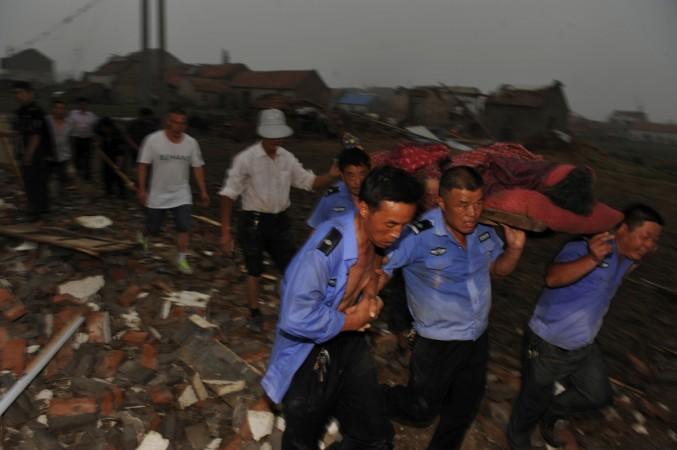
A national level emergency was declared in China after 98 people died and 800 others were injured in China's Jiangsu province after hailstorms, torrential rain and tornadoes hit the city of Yancheng on Thursday night. Rescue operations were underway on Friday in search of the missing under debris of houses that were leveled during the storm.
At least 200 people were critically injured in the storm, Xinhua news agency reported. Rescue workers tried to ferry the injured into ambulances and deliver food amid blocked roads and power cut offs.
Chinese President Xi Jinping, who is in Tashkent for the Shanghai Cooperation Organisation Summit, has ordered rescue efforts in Jiangsu.
More rain, hailstorms and tornadoes are expected.
"The people inside tried to run outside, but the wind was too strong so they couldn't," villager Wang Shuqing told the Associated Press. "My family members were all inside, they all died. The police then came and took the bodies out, I can't bear it."
Another resident compared the storm on Thursday to apocalypse.
"It was like the end of the world," Xie Litian, 62, from Donggou township in Funing County, was quoted as saying by ABC news.
"I heard the gales and ran upstairs to shut the windows," he said.
"I had hardly reached the top of the stairs when I heard a boom and saw the entire wall with the windows on it torn away."
All the houses in his neighbourhood were destroyed.
Residents of Yancheng took to social media to offer help like medical assistance, ABC news reported.
The volatile weather in China has led to a loss of 2.7 billion yuan ($540 million).
In other regions, 22 people were killed in floods and almost 200,000 were displaced. While rain and storms are expected during the summer, the weather has been vicious in 2016, which China attributes to the El Nino effect.

















